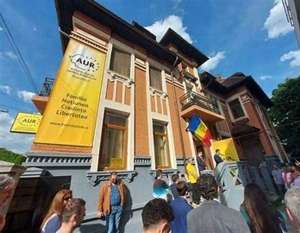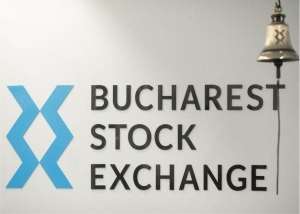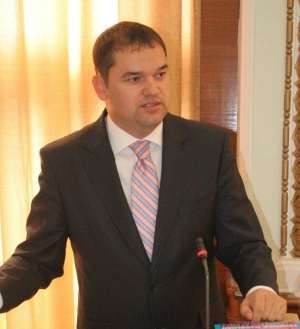• Interview with Gabriel Sorbo, regional manager at "Western Union" - for Italy, Romania, Greece, Bulgaria, Malta and Cyprus
Reporter: How did the money transfers to Romania evolve in the last few years?
Gabriel Sorbo: According to data published by the World Bank, in 2009, 2010 and 2011, money transfers to Romania decreased 47%, 20%, and 5% respectively, to 3.75 billion dollars in 2011. The current estimates of the World Bank (based on the data available on the evolution of the transfers for the current year) show that the market will continue to drop in 2012 as well, by about 6%.
The difference between the amount of the transfers and that of direct foreign investments has continued to grow over the last two years. But, considering that the market for transfers continues to decline, and direct foreign investments to Romania are estimated to increase 25% in 2012, according to Global Insight, this difference will no longer increase, quite the contrary, it will shrink in 2012.
Reporter: What are the causes behind this evolution?
Gabriel Sorbo: The economic crisis had an impact on the population all over the world, including Romanian migrants. Approximately 89% of those who use Western Union are migrants who left their country to look for economic opportunities. As senders of funds, they are still in the economically developed countries, such as the USA, Great Britain, Italy, Spain, and the problems which these countries are faced with have also had repercussions against them. Some of them lost their jobs, many of their monthly expenses have increased. This has also pressured the amounts available for sending home, meaning they haven't stopped sending money, but the amounts have decreased. Our studies show that the average amount per transaction in 2012 is 360 dollars, slightly lower than last year.
In Romania, approximately 70% of the money sent is used for the day-to-day expenses of the people living here, such as utilities, food, clothes for the children, school supplies, in other words, absolutely necessary things. The people at home survive thanks to this support. Generally speaking, compared to the private capital flows, transfer flows have weathered the global financial crisis the best. Thus, they have seen a slight drop only in 2009, but they have recovered quickly and they are following the same trend.
Reporter: What are your expectations for the coming years?
Gabriel Sorbo: The forecasts concerning the global market of the transfers are positive. According to data of the World Bank, we can expect increases in the value of the transferred capital, on a global level, at an estimated rate of 6.9%, in 2013 and of 9.2%, in 2014. These estimates are taking into account the fact that the total number of migrants is beginning to grow. In 2010 it was valued at 214 million Euros on a global level and estimated to reach 405 million lei in 2050.
We will continue to implement our growth strategy by combining our traditional strengths, namely a globally recognized brand and a strong presence on the retail segment, with the online, card and pre-paid accounts segments, mobile services and cross-border business platforms. We want to better respond to the needs of today's consumers, who are increasingly requesting more options which involve the new technologies. The area of Europe and the Community of Independent States (CSI) can represent one first example when it comes to the transformation we are going through, because these new products and services are available in numerous markets in the region. Romania is a key market in that regard by introducing these new services and channels.
Reporter: How much do the transfers made through informal channels represent out of the total transfers?
Gabriel Sorbo: According to officially recorded data, it is estimated that the total value of the global transfers will reach 534 billion dollars in 2012. The World Bank considers that in reality, this amount is a lot bigger, if the non-monitored flows - which take place through informal channels - are included. We don't, however, have any concrete data in that regard.
Reporter: How is "Western Union" positioned on the money transfer markets?
Gabriel Sorbo: According to the latest estimates, we have a market share of 17% on a global level. Last year, 226 million consumer-to-consumer transactions were made through Western Union, with total transfers of 81 billion dollars between consumers and 425 million commercial payments. Our services are accessible globally through a network of approximately 510,000 locations in 200 countries and territories.
Reporter: Thank you!


























































